Khun Sa, Ex-Drug Lord, Guerrilla, Dies
BANGKOK, Thailand (AP) — Khun Sa, a drug lord once described by the U.S. government as the world's largest producer of heroin, has died, an associate and a Myanmar official said Tuesday. He was 74.
Khuensai Jaiyen, a former secretary of Khun Sa, said his former boss died Friday in Yangon, Myanmar's largest city, according to relatives. The cause of death was not immediately known, but Khun Sa had long suffered from diabetes, partial paralysis and high blood pressure.
Khun Sa once headed a guerrilla army and called himself a freedom fighter. For nearly four decades, the charismatic warlord claimed to be fighting for autonomy for the Shan, one of many ethnic minorities who have long battled the central government of Myanmar, also known as Burma.
But narcotics agents around the world used terms like the "Prince of Death" to describe him, saying his organization relied on violence, murder, assassinations and bribery. At one point, Washington estimated that up to 60 percent of the heroin in the United States was refined from opium in his area and the U.S. once offered a $2 million reward for his arrest.
"They say I have horns and fangs. Actually, I am a king without a crown," he once told an Associated Press reporter, who visited his remote headquarters of Ho Mong — an idyllic valley near the Thai frontier inside Myanmar — after an 11-hour mule ride.
At the height of his notoriety, Khun Sa presided over a veritable narcotics kingdom complete with satellite television, schools and surface-to-air missiles in the drug-producing Golden Triangle region where Myanmar, Thailand and Laos meet.
He preferred to paint himself as a liberation fighter for the Shan, heading up the Shan United Army — later the Mong Tai Army — in Myanmar's northeastern Shan State.
He had lived in seclusion in Yangon since 1996, when he surrendered to the country's ruling military junta who allowed him to run a string of businesses behind a veil of secrecy.
A Myanmar official in Yangon confirmed the death. Khun Sa was cremated Tuesday morning, said the official, who spoke on condition of anonymity because he is not authorized to speak to the media.
Khun Sa's body had been kept since Friday at Yay Way cemetery in Yangon's outskirts, where the cremation took place, said a cemetery worker who asked not to be named for the same reason.
Born of a Chinese father and Shan mother on Feb. 17, 1933, Khun Sa received little education but learned the ways of battle and opium from the Kuomintang, remnants of forces defeated by China's communists and forced to flee into Myanmar.
By the early 1960s Khun Sa, also known as Chang Chi-fu, had become a major player in the Golden Triangle, then the world's major source for opium and its derivative, heroin.
He suffered a near knockout blow in the so-called 1967 Opium War, fighting a pitched battle with the Kuomintang in Laos. Laotian troops intervened by bombing both sides and making off with the opium.
For a time he served in the Myanmar government militia, but was jailed in 1969 after allying himself with the Shan cause. He was freed five years later in exchange for two Russian doctors kidnapped by his followers.
The wily operator sought a less hostile environment in Thailand, setting up a hilltop base protected by his sizable Shan United Army. But the Thais were embarrassed by having a drug kingpin on their soil and he was driven out in 1982 and lodged himself in Ho Mong.
There, the chain-smoking warlord entertained visitors with Taiwanese pop songs, grew orchids and strawberries, and directed a flow of heroin to addicts around the world.
Khun Sa claimed he only used the drug trade to finance his Shan struggle. He argued that only economic development in the impoverished Shan State, still one of the major sources of the world's heroin, could stop opium growing and its smuggling to the "drug-crazed West."
"My people grow opium. And they are not doing it for fun. They do it because they need to buy rice to eat and clothes to wear," he once said.
He offered to sell Washington the entire crop of opium in exchange for funds to implement his development plans for the Shans.
But in 1989, he was indicted for heroin trafficking by the U.S. District Court in New York and his extradition to the United States was requested.
Khun Sa continued to war with the central government and rival ethnic guerrilla groups like the Wa until 1996 when the junta, which had once threatened to hang him, offered him amnesty. He disbanded his Mong Tai Army of about 10,000 fighters and moved to Yangon.
Although difficult to confirm, reports said he lived a life of luxury in a secluded compound, having been awarded concessions to operate a ruby mine along with other businesses.
There was speculation that he was still involved in the narcotics trade, which was largely taken over by his former enemies, the Wa.

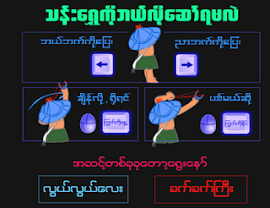
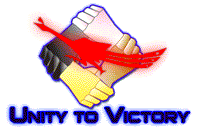


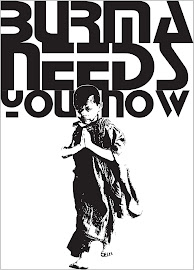

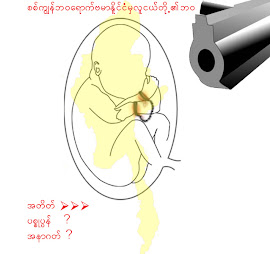



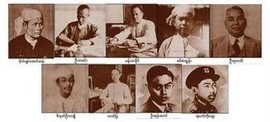

No comments:
Post a Comment